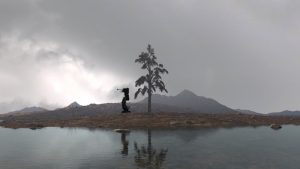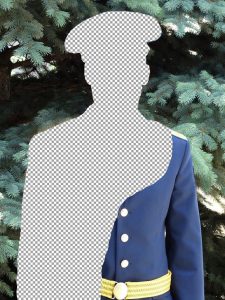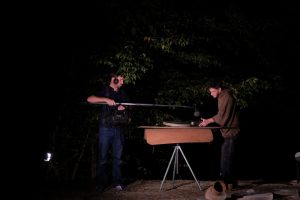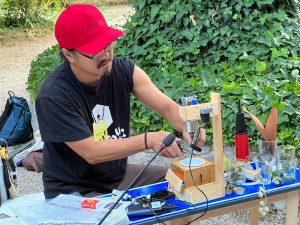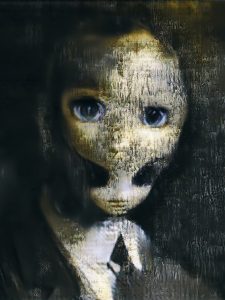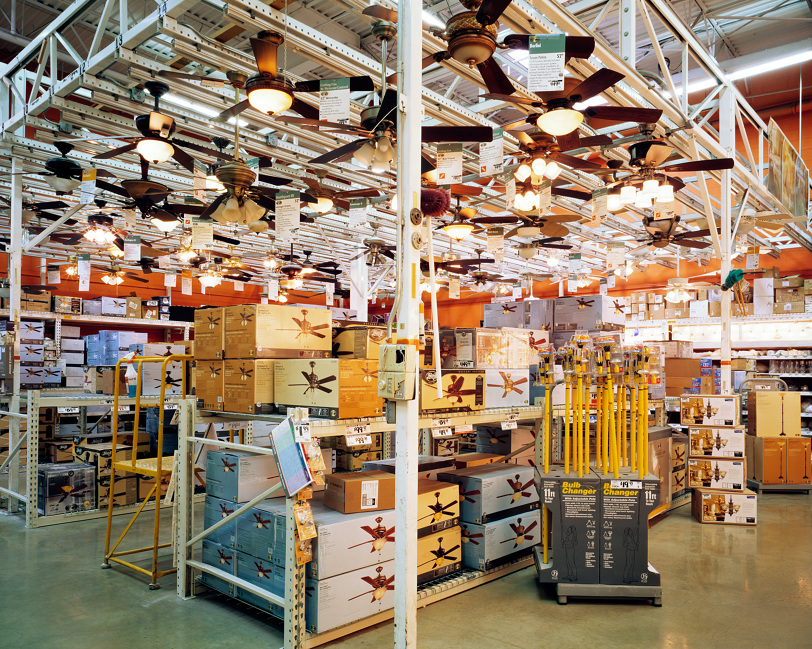
Keith Yahrling, Home Depot, Philadelphia, Pennsylvania, 2007
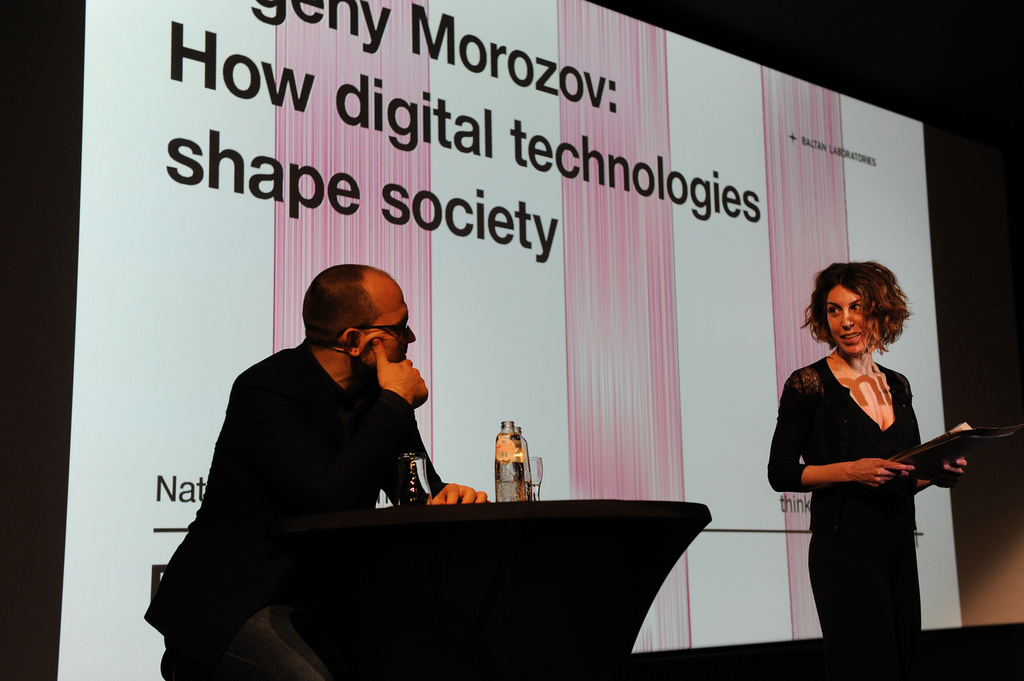
Evgeny Morozov with Olga Mink. Photo by Diewke van den Heuvel for Baltan Laboratories
Another quick look back at the Economia festival that took place at Baltan Laboratories in Eindhoven a few weeks ago…
As i mentioned earlier, the event’s rallying cry was that time had come to discuss the economy without inviting the economists to the table. The festival performances, screenings, artworks and talks did indeed bring a radically new perspective on the economical challenges that society has been facing over the last decade. The keynotes were particularly unexpected and enlightening. The ever eloquent and provocative Evgeny Morozov walked us through the signs of the formidable march of the tech giants towards political control and economic monopoly. Pankaj Mishra explored the Age of Anger and his talk was, imho, far less incisive than his book. The videos of their keynotes are online but i’m going to put the spotlight on the other two talks: Frank Trentmann‘s chronicle of the consumerist society and Geerat Vermeij‘s theory about how a closer study of biological ecosystems can teach us more about the mechanisms and trends of the economy than we might suspect.
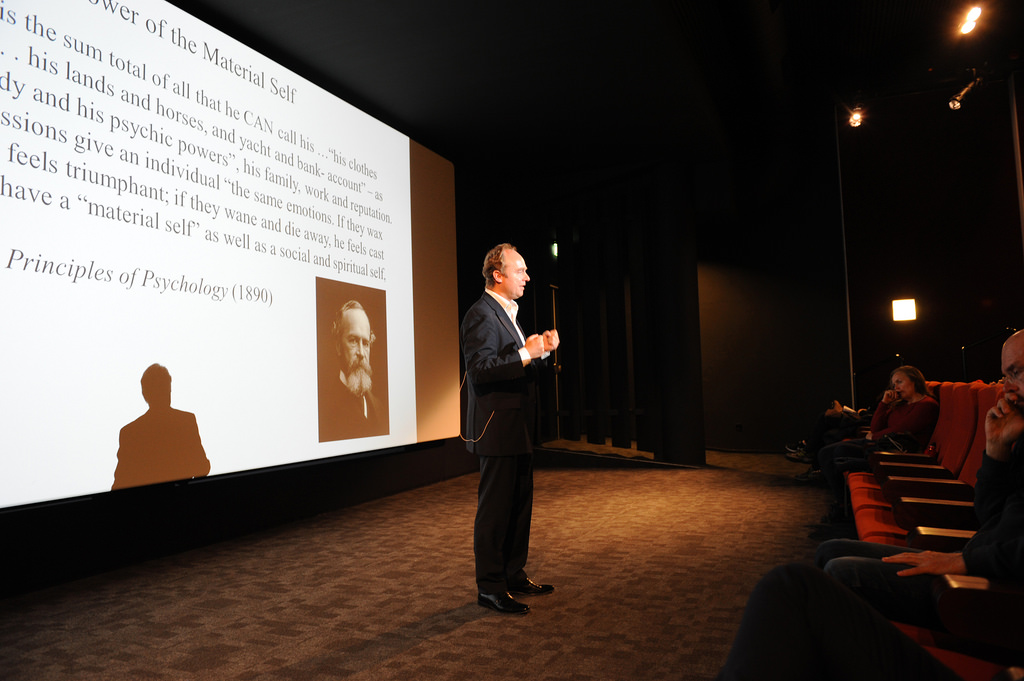
Frank Trentmann. Photo by Diewke van den Heuvel for Baltan Laboratories
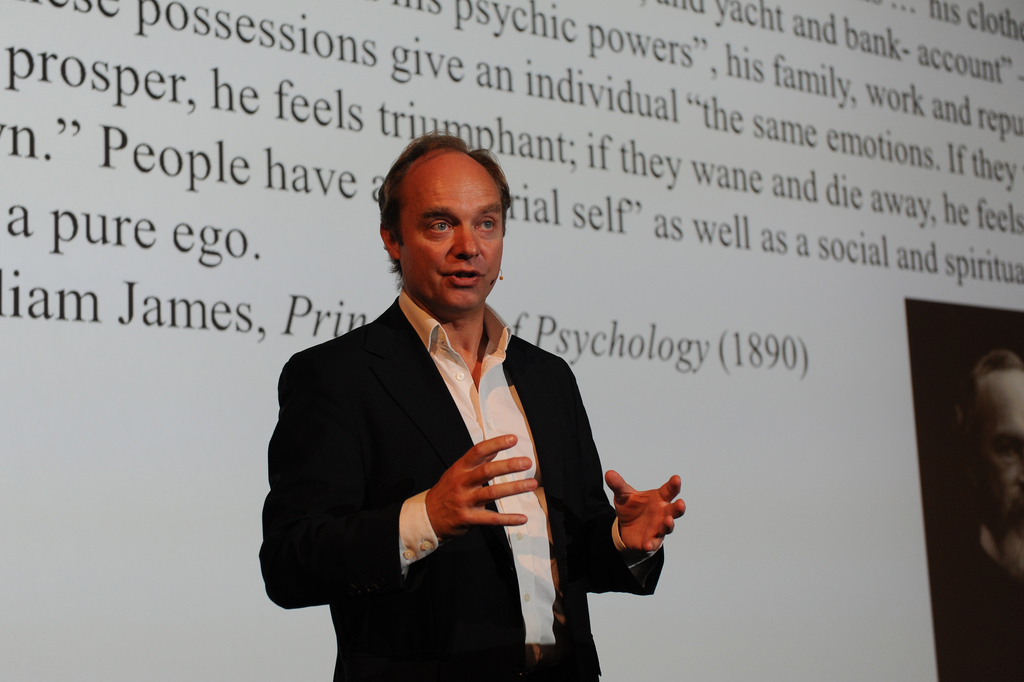
Frank Trentmann. Photo by Diewke van den Heuvel for Baltan Laboratories
Frank Trentmann: A world of consumers. Keynote lecture at the Economia Festival
Historian Dr. Frank Trentmann drew upon his book Empire of Things to narrate the history of consumption and the many impulses that drive our ‘material self’. It was a fascinating and instructive talk. I learnt that consumption didn’t start in the 1950s in the US but long before that, in Europe and in the China of the Ming dynasty. And that the biggest boom in consumption took place in the 1950s and 1960s when society was becoming more equal and the states started to dedicate more resources to the well-being of their citizens. I was reminded that women, at a time when they were not allowed to vote, turned their purchasing power into civic power, feeling that they had a social duty towards the underpaid workers who were producing the goods. Whether you agree with his views or not, you might find Trentmann’s concluding remarks thought-provoking, especially when he explains why he doesn’t believe that we’ve reached peak stuff, and why the drive for ‘experiences‘ is nothing new and won’t slow down our shopping frenzy.
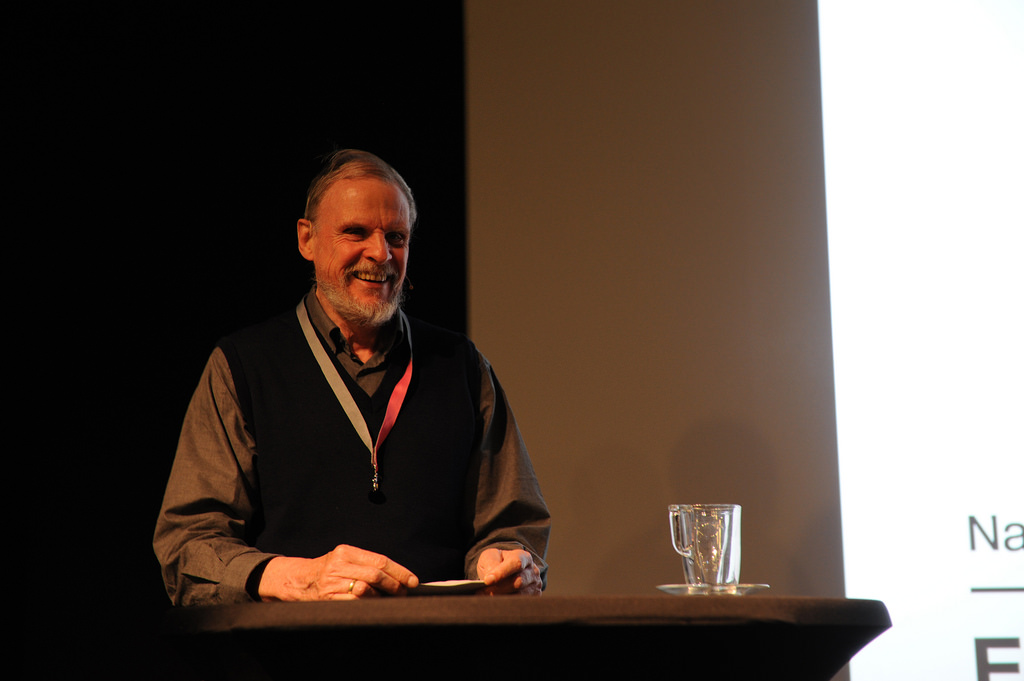
Geerat Vermeij. Photo by Diewke van den Heuvel for Baltan Laboratories
Geerat Vermeij: The economy of nature. Keynote lecture at the Economia Festival
Geerat Vermeij is an evolutionary biologist. Eleven years ago, he wrote Nature: An Economic History, a book which explores how processes common to all economic systems–competition, cooperation, adaptation, and feedback–govern evolution as surely as they do the human economy, and how historical patterns in both human and nonhuman evolution follow from this principle.
Throughout his talk, the scientist highlighted strong parallels between biological evolution and economics in the human realm in order to try and answer a rather vital questions: Can we construct a healthy economy that doesn’t grow?
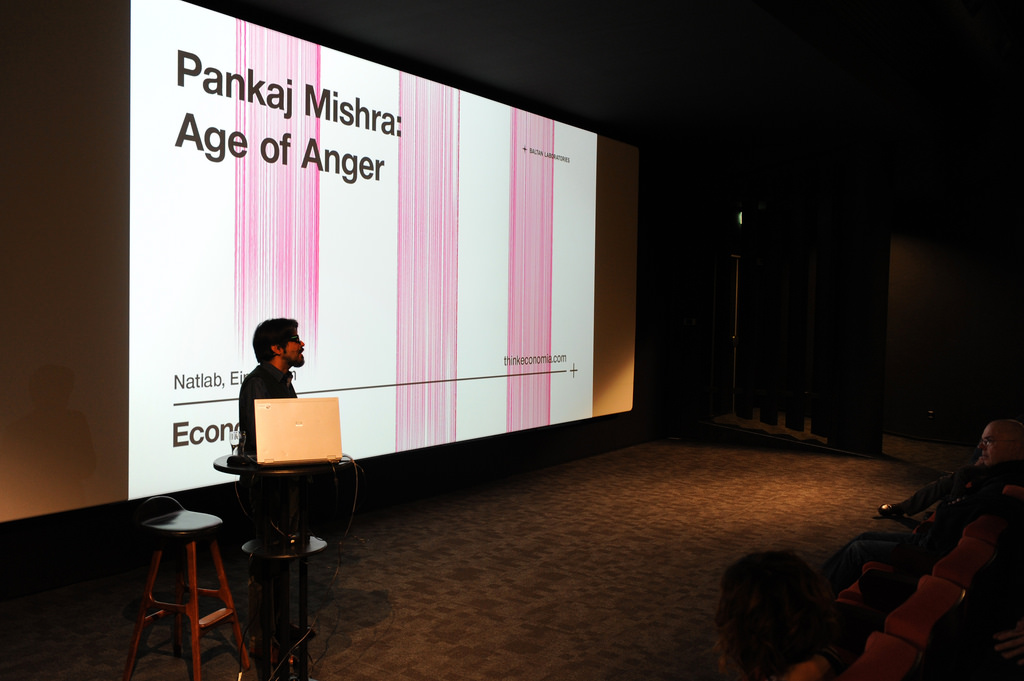
Pankaj Mishra. Photo by Diewke van den Heuvel for Baltan Laboratories
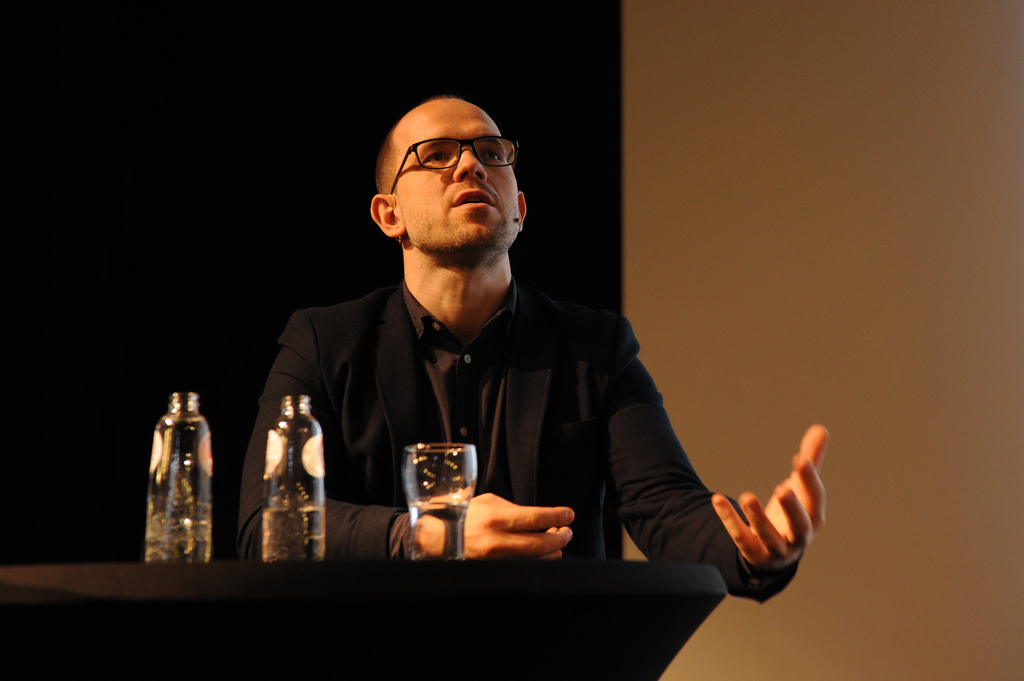
Evgeny Morozov. Photo by Diewke van den Heuvel for Baltan Laboratories
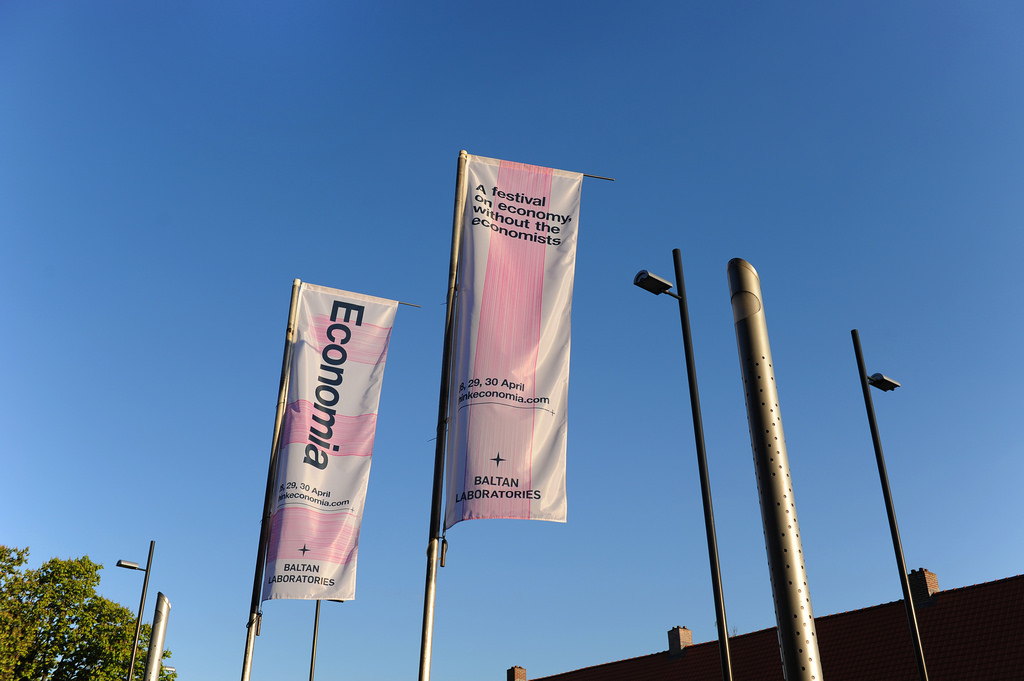
Photo by Diewke van den Heuvel for Baltan Laboratories
The Economia festival was curated by Wiepko Oosterhuis and organised by Baltan Labs in Eindhoven.
Previously: Economia, a festival on economy without the economists and Economia festival: short films about finance.

